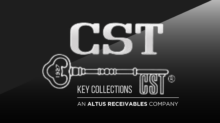
It’s hard to know whether or not to sue, to try and collect your past-due accounts. The outcome of litigation is uncertain. When you are at the point of trying to decide whether or not to invest money for suit, there is only one thing of which you can truly be certain; if you don’t take the risk and proceed, you will not be paid or have any chance for recovery!
The hope of every creditor that advances money for suit is that their account will prove collectible. In many cases, recoveries can be made through litigation. In others, no recovery can be made at all. For instance, after all post-judgment collection remedies have been exhausted, it’s sometimes the case that the debtor simply has no attachable assets out of which the judgment can be satisfied. They are in effect, “judgment proof”.

Does this mean that your investment of time and money for suit has been a total waste? Not always! Just because a judgment is uncollectible now, does not mean that it will always be uncollectible. Circumstances can change over time. A debtor’s financial situation can actually improve. He or she could land a great paying job, years after their business has closed. Or, they could start up another business which might be really successful. Or, they could win the lottery (we’re not kidding–we have seen it happen!).
Judgments are valid for a number of years. The length of time varies from state to state, and most states allow for some type of renewal. If after a number of years, your judgment debtor’s financial situation improves to the point where they could now pay the judgment, they may desire to do so, in order to clean up their credit history, or to sell/refinance real estate.

A judgment lien attaches to real estate, and this can make a judgment more collectible years down the road. In most cases, when attorneys enter a judgment in your behalf, they will record it as a lien in at least the county where the suit was initiated. They might even record it in a neighboring county, if they have reason to believe the debtor may own property there, also. In most cases, the judgment lien will attach to any real property currently owned by the debtor, or subsequently acquired in the future. If your debtor owns his/her home, for example, and they continue making their mortgage payment timely for years after the judgment is entered, it is reasonable to assume that the value of the property will go UP, while the balance of their mortgage will go DOWN (assuming they don’t get into further financial trouble and go bankrupt, or lose the house altogether). This allows them to build up equity in the property over the years. They may then at some point want to sell or refinance the property. They will find they can’t do that, unless your judgment is dealt with first.
In summary, filing suit and obtaining a judgment not only gives you a fighting chance of collecting your money now, it may also provide you with an opportunity to collect at some later time.
If you have any questions about this topic, or any other collection matter, contact your local CST representative or our office.
